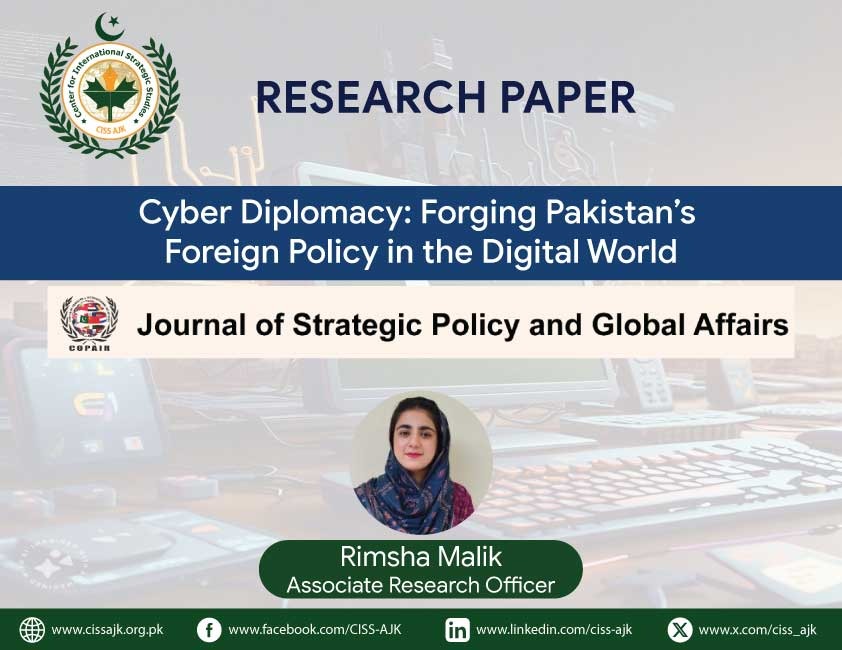Abstract At the dawn of the 21st century, technology has transformed civilizations all over the world through the phenomenon of globalization. Besides compressing time and space, globalization has upgraded the efficiency of human structures and procedures to function at optimum levels. With the increased number of participants in the digital space, global contestation has commenced in pursuance of accruing maximum benefits. State-driven strategic relations have also been influenced by this phenomenon ofthe information age and greater dependenceon technologically oriented practices has led toexploringnew dynamics and dimensions of diplomacy.Besides conventional diplomacy, a need has been felt to engage diplomats around the world through the digital medium for effective conflict management. Cyberdiplomacyis therefore defined as the strategicmanagement of international affairs using digital networksto foster engagementsamong diverse nations forpromoting global peaceand stability. The amalgamation of technology and diplomacy has offered several opportunities besides challenges.Off late Pakistan has also stepped into this domain and has launched various foreign policy initiatives to remain relevant, however, it seems a distant call to mature its digital diplomatic structures. Pakistan currently faces adverse technological and infrastructural issues that hamper its performance and efficiency in digital conflict resolution. Therefore, to forge Pakistan’s foreign policy in the digital world, a comprehensive strategy is required to streamline and further its objectives and interests at an unprecedented pace matching the globalized digital architecture. With this pretext, the paper will examine the impact of technology in the diplomatic sphere while highlighting Pakistan’s prospects and challenges in the cyber domain. Policy recommendations are also proffered to cement the efforts of Pakistan’s government in implementing the cyber diplomatic regime.
Cyber Diplomacy: Forging Pakistan’s Foreign Policy in the Digital World
502



